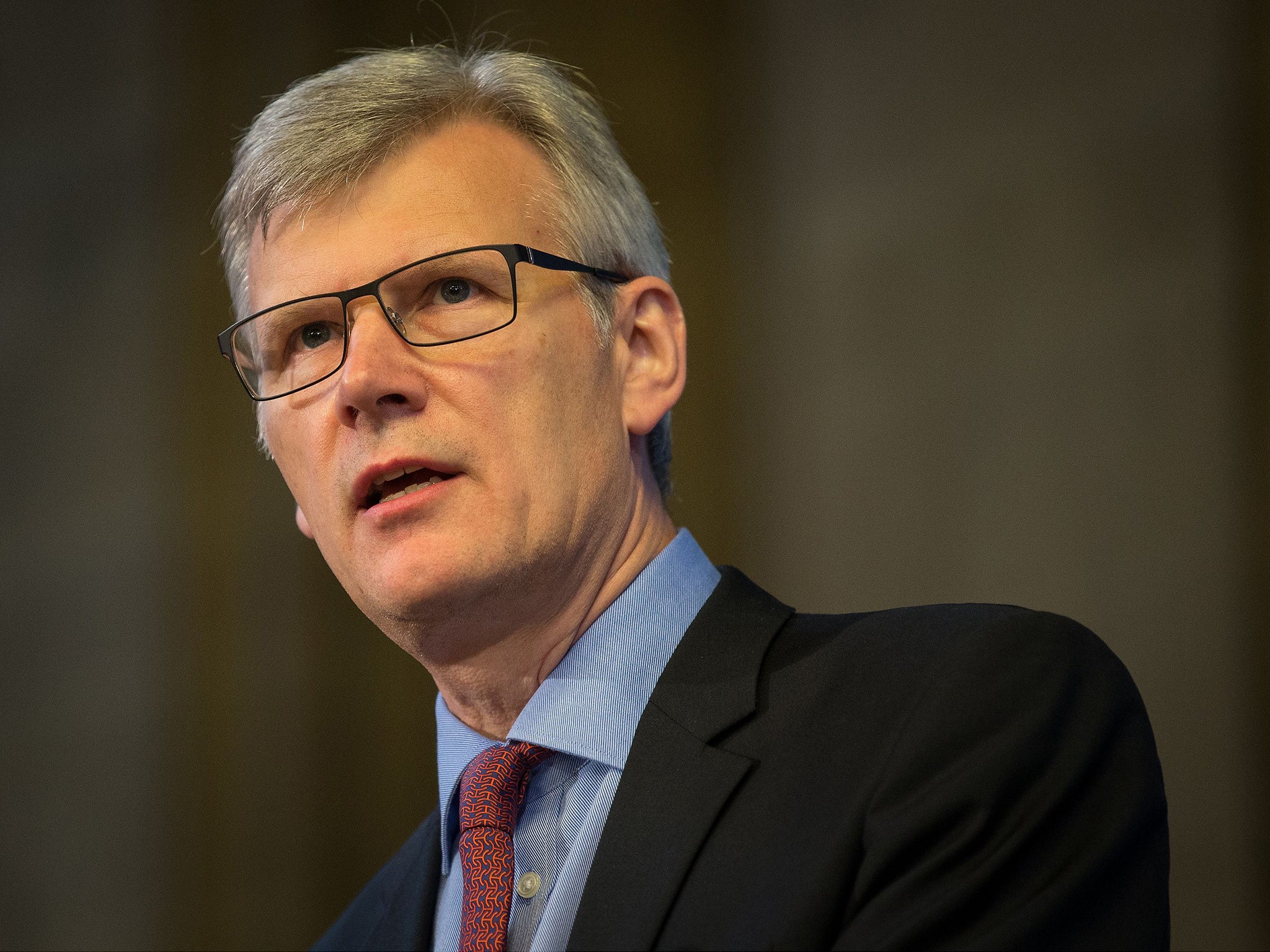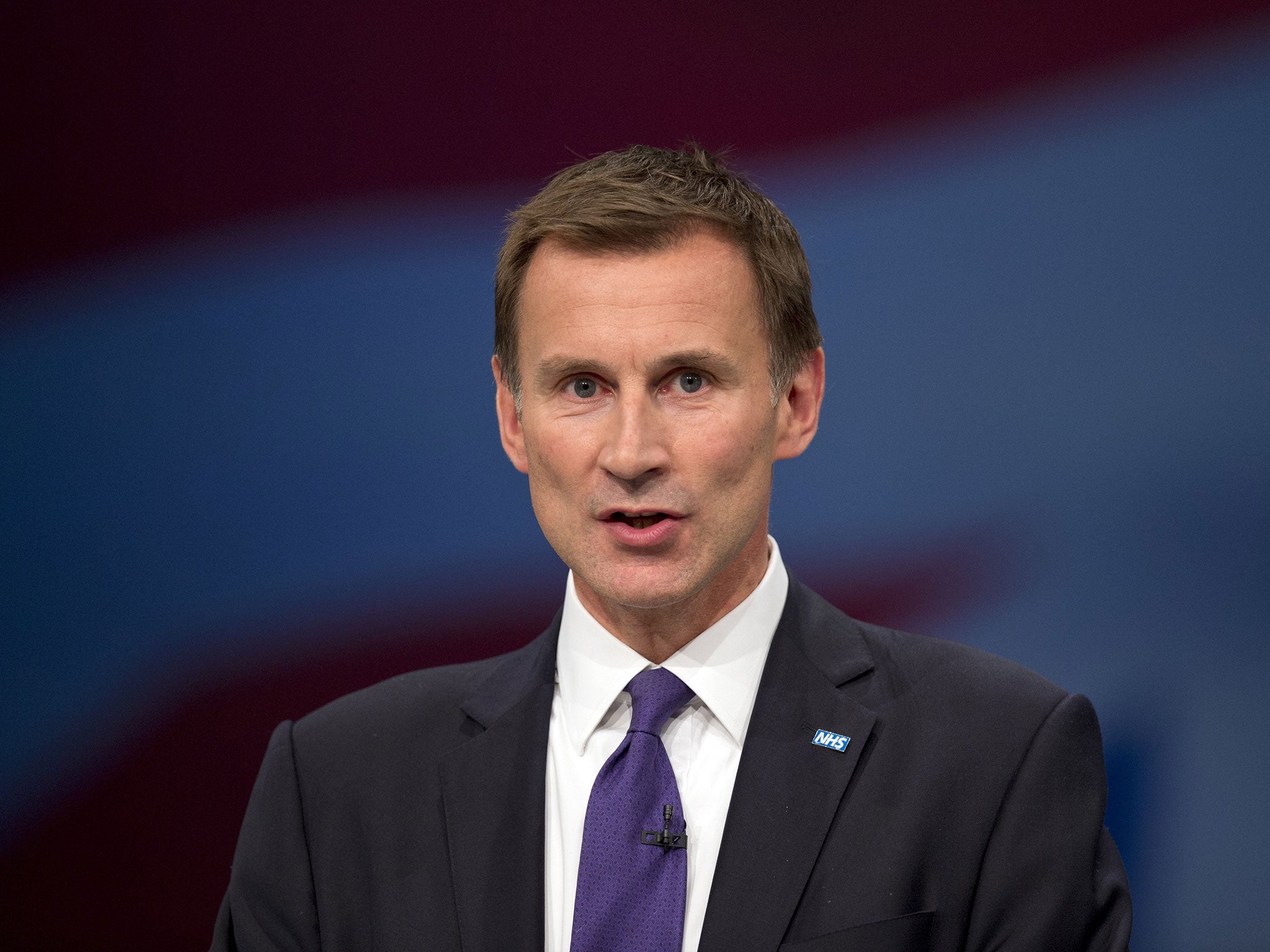Jeremy Hunt criticised over junior doctor fiasco – by his own chief negotiator
Sir David Dalton said that the strike demonstrated that the BMA could 'land a punch' on the Health Secretary

Your support helps us to tell the story
From reproductive rights to climate change to Big Tech, The Independent is on the ground when the story is developing. Whether it's investigating the financials of Elon Musk's pro-Trump PAC or producing our latest documentary, 'The A Word', which shines a light on the American women fighting for reproductive rights, we know how important it is to parse out the facts from the messaging.
At such a critical moment in US history, we need reporters on the ground. Your donation allows us to keep sending journalists to speak to both sides of the story.
The Independent is trusted by Americans across the entire political spectrum. And unlike many other quality news outlets, we choose not to lock Americans out of our reporting and analysis with paywalls. We believe quality journalism should be available to everyone, paid for by those who can afford it.
Your support makes all the difference.The Government’s message on improving seven day services in the NHS has become “muddled” during the junior doctor contract dispute, the man appointed by Jeremy Hunt to lead negotiations has said.
Sir David Dalton, the respected chief executive of Salford Royal NHS Foundation Trust, said that junior doctors were in fact the NHS staff group that will have to do the least extra work in order to achieve the Government’s ambition of improved hospital services at weekends.
Speaking in an interview with the Health Service Journal, he also acknowledged that the strike, which received significant public support, demonstrated that the British Medical Association (BMA) could “land a punch” on the Health Secretary.
However he said that a planned walkout from all hospital departments – including those providing emergency care which has so far been spared strike action – would be “disastrous” and could usher in “a long, dirty war of attrition” between doctors and the Government.
Sir David, who leads one of the country’s best-performing hospitals, was appointed by Mr Hunt to take charge of talks with junior doctors earlier this month. However, he suggested that junior doctors had needlessly been made to feel victimised during their drive for improved weekend services.
“My assessment is that the staff group that will have to contribute the least above that which they are providing at the moment would be our doctors in training. Our messaging on this has got muddled,” he said.
“The fact that has not been made clear at the outset has been received as a criticism of the contribution that trainees make.
“We should be saying safe reliable care across seven days is our aim and not single out this as an issue that only affects medical trainees.

He said it was right for the NHS to address “unwarranted variation” in care at different times of the week, but said the “whole system” needed to “re-orientate itself”.
Nurses and other NHS staff are also expecting their contracts to come up for renegotiation, with any proposals for cuts to out-of-hours pay – similar to those that have contributed to the junior doctor dispute – likely to cause anger. The Royal College of Nursing has already said cuts to unsocial hours pay would be a “red line” that could trigger industrial action.
Sir David said it was now time for both sides in the junior doctor dispute to allow “respectful private discussions”. Several issues, including disagreement over what safeguards should be in place to protect junior doctors from being over-worked, still need to be resolved.
“What happened [on 12 January] was that the BMA has been able to demonstrate it can land a punch on the secretary of state. I think it reinforces for the BMA that they have a mandate and support to do what they have done,” he said. “What we must now seek is a lowering of the temperature and a movement into private discussion. This is not the time for heroics.”
He said a planned full walkout in February would be “unprecedented”.
“If we arrive at that point then I can see this being a long, dirty war of attrition and nobody will come out on top of that and the government will be placed in a position where it would have to consider acting in the interests of patients to secure safe services,” he warned.
Join our commenting forum
Join thought-provoking conversations, follow other Independent readers and see their replies
Comments